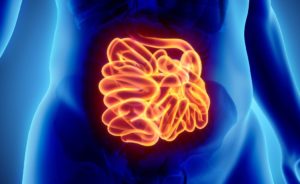People with celiac disease are at greater risk of developing colorectal cancer than those without. The risk of developing the cancer is still low.

It concludes a new study with Swedish data, published in the journal Gastroenterology .
– The risk of developing cancer of the small intestine is low, also in those with celiac disease, but the figures still show an increased incidence of cancer in this group, says Louise Emilsson, associate professor at the University of Oslo and first author of the scientific article.
The study identified 48,119 people with celiac disease compared with 239,249 controls.
Celiac disease is a chronic disease in which the small intestine in the small intestine is destroyed due to inflammation. The inflammation is due to an abnormal reaction to gluten.
Different cancers
According to the researchers, what distinguishes this study from other similar ones is that it takes a closer look at the various cancers in the small intestine, in addition to looking at the significance of the mucous membrane.
Small bowel cancer is a common term for different types of cancer. The most common of these cancer diagnoses are adenocarcinoma and carcinoid .
Common diagnoses
- An adenoma is a benign tumor that originates from glandular cells. Some adenomas can develop into adenocarcinomas . A carcinoma is a type of cancer that can originate from glandular tissue. The word adenocarcinoma is composed of the Greek words aden (gland) and karkinos (cancer / cancer).
- According to Store norske leksikon, the most common cancers in Norway are various forms of adenocarcinomas. In total, they make up about half of all cancer cases in Norway.
- Carcinoid tumors are tumors that originate from hormone-producing cells. Such cells are located in most of the body’s organs. .
Source: Large medical encyclopedia
There was no difference between those with and without celiac disease when it came to small bowel carcinoids. On the other hand, the cancerous form of adenocarcinoma was more prominent among those with celiac disease.
– The study revealed one additional case of this cancer for every 2944 patients with celiac disease, compared to the control group. An increased incidence of adenoma, which are precursors to adenocarcinoma, was also revealed, Emilsson explains.
The significance of the mucous membranes
The study further compared the risk of celiac disease in cancer patients with the condition of the mucous membranes.
In celiac disease, the lining of the intestine is broken down. This normalizes in most people with the condition, as soon as they switch to a gluten-free diet. For some, however, the problem persists.
The results of the study suggest that celiac patients who still had degraded mucous membranes during follow-up tests of tissue, may have a slightly greater risk of cancer than celiac patients where the mucous membrane had healed after diagnosis.
– Although this association was strong, it was still not strong enough for the result to be considered statistically significant, points out Emilsson who thinks it is encouraging to contribute to increased knowledge about the rare small bowel cancer, and bowel cancer in general in the further project work.
No need for screening
The median for developing small bowel cancer was 2.7 years after a person was diagnosed with celiac disease, but the study also showed that celiac patients were more likely to survive cancer than the control group.
– We do not know why this is so. There is little literature on the subject, but what is from previous studies finds the same trends as we do, says Emilsson.
Although the study finds that people with celiac disease have a slightly higher risk of developing small bowel cancer, it is not large enough to recommend large-scale screening, according to Emilsson.
– This study does not suggest the need for special monitoring of people with celiac disease, but if you experience symptoms that are compatible with small bowel cancer, then you should examine yourself.











